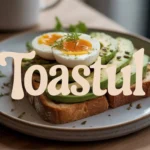Nlpadel has become one of the most exciting sports phenomena in the Netherlands. The fusion of tennis and squash, padel has grown rapidly worldwide, and the Dutch sporting community has embraced it wholeheartedly. When people search for nlpadel, they are looking for insights into where they can play, how to get started, and why this sport has become so popular in the country.
Unlike traditional racquet sports, padel is played in doubles on an enclosed court with glass and mesh walls. This unique design keeps the ball in play longer and makes the game fast, dynamic, and accessible to players of all skill levels. For many Dutch sports enthusiasts, nlpadel is more than a game; it is a lifestyle built around health, community, and fun.
What is Nlpadel?
Nlpadel refers to the growing padel movement in the Netherlands. It covers everything from local padel clubs and courts to tournaments, coaching, and online communities where players connect. The term has become synonymous with the Dutch padel experience, making it a central hub for those wanting to explore the sport.
The Netherlands has seen padel expand at an unprecedented pace. In just a few years, dozens of courts have been built across the country. Dutch cities such as Amsterdam, Rotterdam, and Utrecht now host both casual games and high-level competitions. The popularity of nlpadel reflects not only the fun nature of the sport but also its ability to bring people together across different ages and backgrounds.
The Rise of Padel in the Netherlands
The story of padel in the country begins with international influence. The game originated in Mexico and later spread to Spain, where it became a cultural phenomenon. The Dutch, known for embracing innovative sports, quickly adopted it.
One reason for its rise is accessibility. Unlike tennis, which can require years of practice, padel allows beginners to enjoy rallies almost immediately. The smaller court and lighter racquet reduce the learning curve, making it perfect for newcomers. Families, colleagues, and even professional athletes outside racquet sports have taken up the game in the Netherlands, contributing to its widespread popularity.
Why Nlpadel is So Popular
The success of nlpadel can be explained by several factors. Firstly, it is a social sport. Since it is played in doubles, players naturally build teamwork and camaraderie. Secondly, it is physically rewarding without being overly demanding. The glass walls allow for long rallies, making the game both strategic and entertaining.
Additionally, Dutch padel clubs are known for their welcoming culture. Many offer beginner lessons, equipment rentals, and events that foster a sense of community. As a result, players feel included and motivated to continue playing regularly.
Health Benefits of Playing
This sport is more than just entertainment—it offers impressive health benefits. Playing improves cardiovascular fitness, strengthens muscles, and boosts coordination. Unlike more intense sports, padel provides a balanced workout that can be enjoyed by people of all fitness levels.
Another benefit is mental wellness. Engaging in matches helps reduce stress, enhances focus, and creates social connections, which are vital for overall well-being. For office workers and students in the Netherlands, joining a local padel club provides the perfect break from daily stress.
Challenges Facing Growth
Despite its rapid rise, padel in the Netherlands faces some challenges. Court availability is one major issue. Demand is growing faster than supply, leading to waiting lists at popular clubs. Some regions still lack proper facilities, making it difficult for players to access the sport.
Another challenge is cost. Building courts requires investment, and clubs must balance affordability with sustainability. However, with growing interest, more investors and municipalities are stepping in to develop facilities, ensuring long-term growth.
How to Get Started with Nlpadel
For beginners eager to try nlpadel, the journey is straightforward. Start by locating a nearby club. Many Dutch cities have facilities that welcome new players and offer trial sessions. Renting equipment is common, so you don’t need to purchase a racquet right away.
Beginners are encouraged to join group lessons, as this makes learning more fun and engaging. Clubs often organize social events, giving new players opportunities to meet others while improving their skills. Before long, you’ll find yourself playing regular matches and participating in friendly tournaments.
Essential Equipment
To play effectively, you need the right gear. The main equipment includes a padel racquet, which differs from a tennis racquet in that it has no strings and is made of composite materials with perforations. Padel balls are similar to tennis balls but slightly less pressurized, ensuring longer rallies.
Footwear is equally important. Specialized shoes provide better grip on artificial turf courts, reducing the risk of slipping. While clubs usually provide rental options, investing in quality shoes and a personal racquet can enhance your experience and performance.
Courts in the Netherlands
Padel courts are sprouting across the country, from major cities to smaller towns. Amsterdam alone boasts multiple clubs, each offering unique facilities. Rotterdam and The Hague are also hotspots for padel activity, with courts that attract both casual players and professionals.
Indoor facilities have also gained popularity, allowing year-round play regardless of weather conditions. This has made the sport even more accessible in a country known for its unpredictable climate.
Tournaments and Events
Competitive padel is thriving in the Netherlands. Local tournaments range from small club events to national championships that attract international players. These competitions showcase the skill level within the Dutch community and inspire newcomers to aim higher.
Events are not limited to professionals. Amateur tournaments encourage participation from players of all levels. They provide an excellent platform for improving skills while enjoying the social aspect of the game.
Step-by-Step Guide to Playing
The rules are simple, making it beginner-friendly. The game is played on a smaller court than tennis, with scoring that mirrors tennis rules. Players serve underhand, and the ball must bounce once before hitting the back or side walls.
A typical rally includes quick exchanges, rebounds off glass, and creative shots. Positioning is key, with both players working together to control the net. Mastering serves, volleys, and smashes comes with practice, but even beginners can experience long rallies from the start.
Community and Culture
What sets this movement apart is its strong community culture. Dutch clubs are not just about playing—they also serve as meeting points where friendships flourish. Members often stay after matches to socialize, creating a warm and inclusive environment.
This sense of community has been a driving force behind the sport’s growth. Families, businesses, and schools are incorporating padel into their activities, ensuring it reaches all segments of society.
Future of Nlpadel in the Netherlands
The future looks bright for nlpadel. With increasing investment, improved facilities, and growing recognition, the sport is on track to become a mainstream activity in the Netherlands. National and international collaborations are expanding opportunities for both players and clubs.
As the sport evolves, more young athletes are taking padel seriously as a competitive pursuit. This will strengthen the Netherlands’ position on the global stage.
Nlpadel
Nlpadel is more than a trend—it represents a new era of active lifestyle in the Netherlands. From fitness benefits and competitive opportunities to community bonding, it has touched countless lives. Whether you are a beginner or a seasoned player, nlpadel offers something unique for everyone.
FAQs about Nlpadel
What is nlpadel?
Nlpadel is the Dutch term for padel culture in the Netherlands, covering clubs, courts, events, and the growing community of players.
Where can I play it in the Netherlands?
You can find courts in major cities such as Amsterdam, Rotterdam, Utrecht, and Eindhoven, with new facilities opening regularly.
Is padel difficult to learn?
No, padel is beginner-friendly. Even newcomers can enjoy long rallies and improve quickly with practice.
Do I need special equipment?
Yes, you need a padel racquet, proper shoes, and padel balls. Many clubs provide rentals for beginners.
Is it good exercise?
Yes, padel is a great cardiovascular workout that also improves strength, coordination, and mental health.
Can I play all year round?
Yes, many clubs have indoor courts, allowing play regardless of weather conditions.
Conclusion
Nlpadel is shaping the future of sports in the Netherlands. Its accessibility, social nature, and health benefits make it appealing to a wide audience. With growing facilities, events, and a welcoming community, there has never been a better time to join the movement.
Whether you’re looking for a new hobby, a social activity, or a competitive sport, nlpadel has it all. Take the first step today by visiting a local club and experiencing the thrill of padel for yourself.






